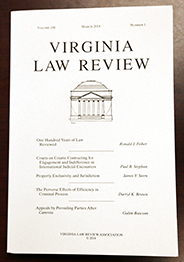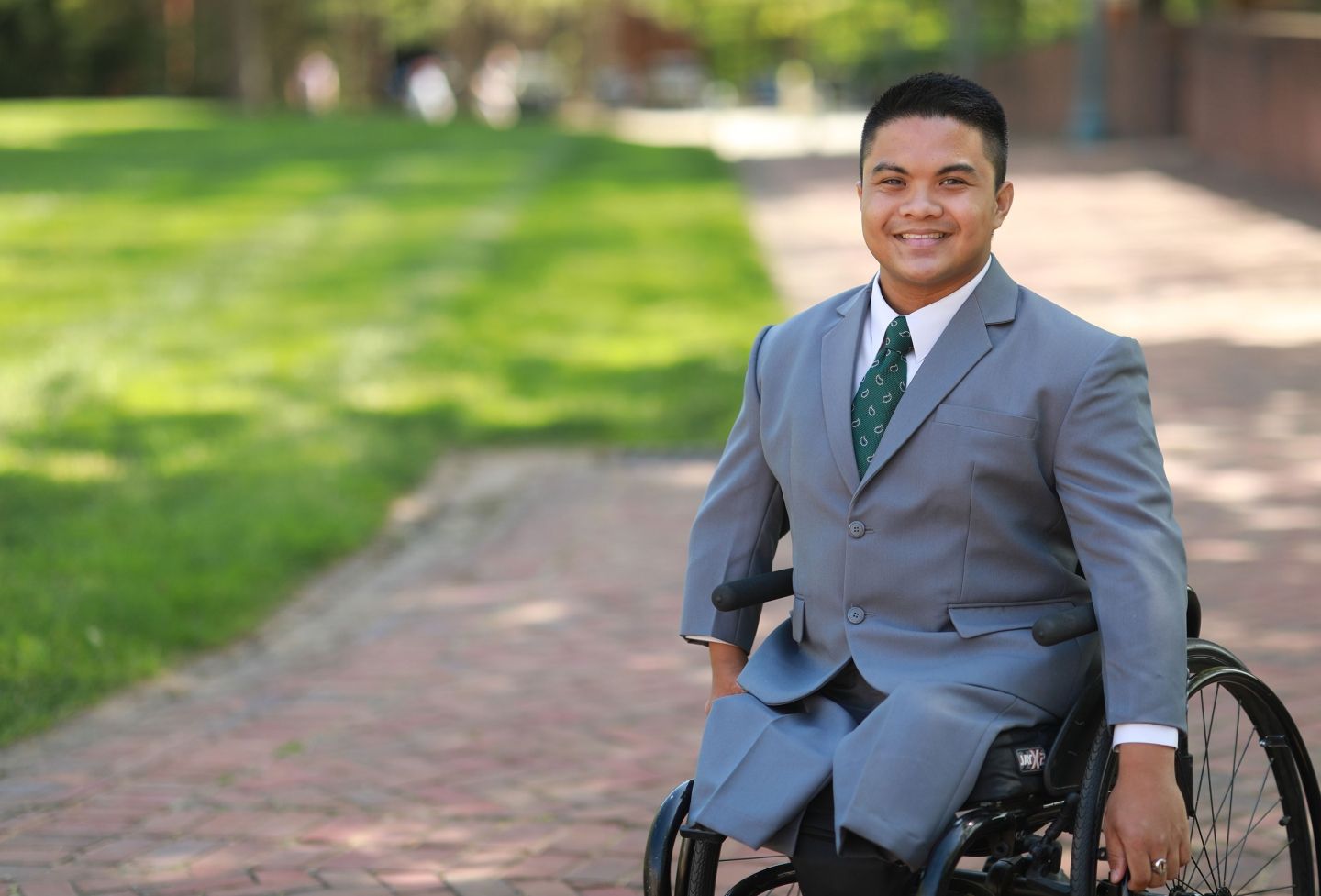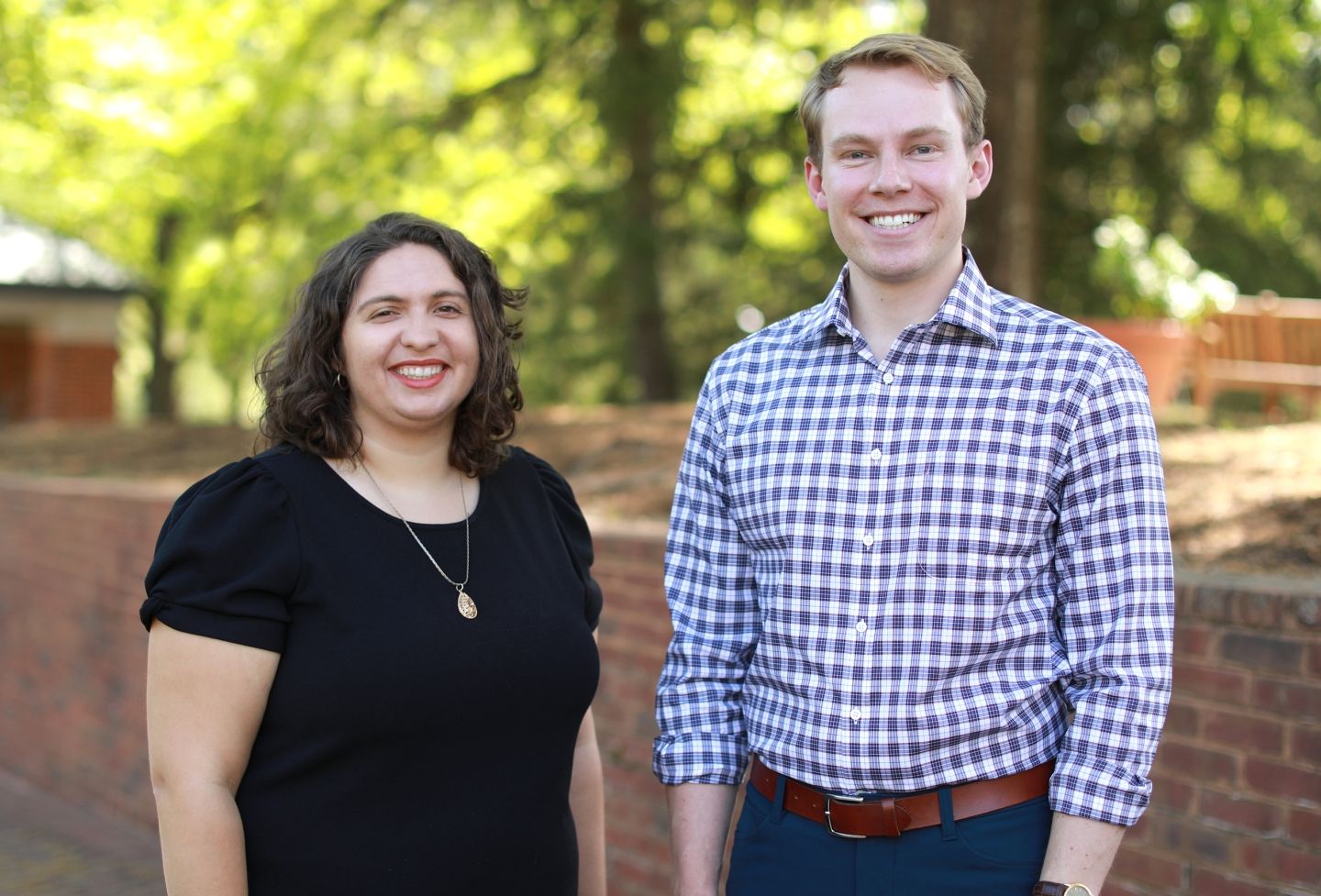With the publication of Vol. 100, No. 1 of the Virginia Law Review this month, the flagship academic journal at the University of Virginia School of Law marks a century of legal scholarship in print. The student-run law review, which is wrapping up a year of centennial events, is one of the most respected and influential periodicals of its kind in the nation.
"The Virginia Law Review does a great service to our faculty and the broader academy by providing a visible and high-quality outlet for legal scholarship," said Dean Paul G. Mahoney. "The law review has made timely and important contributions to some of the central legal debates of the past 100 years."
The milestone issue precedes the review's Centennial Symposium , to be held Friday and Saturday. The symposium will revisit four key articles the review has published and cap off its 100th-year celebrations. The law review has been in print since October 1913, and currently publishes general legal scholarship eight times a year.
Consistently ranked in the top 10 among peer publications, the review holds the No. 10 spot for 2013 (combined score) in Washington & Lee University Law Library's Law Journals: Submissions and Ranking, 2006-2013. In 2012, a Michigan Law Review article titled "The Most-Cited Law Review Articles of All Time" listed the Virginia Law Review as having one of the five most-cited articles in 1997, 1999, 2003, 2006, 2007 and 2009 — as well as two of the 10 most-cited articles of all time in corporate and securities law.

Because of the journal's prestige, getting on the review is a competitive process. Students may "grade on" (based on class rank and grade point average), "note on" (based on having a note selected for publication), or "write on" (based on performance during Unified Journal Tryout). In addition, the review may invite up to five second-year students based on a combination of their first-year grades, performance during journal tryouts and personal statements.
"People tend to focus on law review members — grades, but grading on is only one of four available paths," said Trevor Lovell, 2014-15 editor-in-chief. "The review needs people with strong analytical skills to edit and substantiate complex scholarly articles, so we also recruit the best researchers, writers and editors in each class."
Kent Olson, UVA Law Library's head of research services who has been with the school since 1985, said the review's members never fail to impress with their ability to adhere to academic standards.
"Virginia Law Review members track down sources diligently — even making sure they get and check the sources that are cited by the authors of the works that their articles cite," Olson said.
UVA Law research librarian Kristin Glover agreed.
"Every year the editorial boards put great thought, time and resources into making sure their new members understand their role as cite checkers and how to accurately, thoroughly and efficiently perform the tasks related to that role," Glover said.
Lovell said students have the opportunity to move up through the ranks by vote of the managing board and that their continued outstanding work as editors is a key factor in those decisions.
Former editors-in-chief said exacting standards are part of the review's tradition.
"The members of the Virginia Law Review embrace their responsibility to continue the tradition of excellence by creating a culture of excellence that embodies the special character of the Law School," said Joey Ashbrook, a 2013 UVA Law graduate and the 2012-13 editor-in-chief of the review. "That culture of excellence extends not only to the selection of scholarship, but also to the hard work of meticulous editing and the way in which authors are treated."

John C. Jeffries, Jr., the David and Mary Harrison Distinguished Professor of Law and a former dean of the Law School, served as editor-in-chief of the review from 1972-73. He said serving on the review helps prepare students for the demands of the legal profession.
"The review experience teaches many things," Jeffries said. "One is attention to writing. Another is attention to detail. Both are good lessons for young lawyers."
This article is part of a series honoring the Virginia Law Review's 100th anniversary.
Founded in 1819, the University of Virginia School of Law is the second-oldest continuously operating law school in the nation. Consistently ranked among the top law schools, Virginia is a world-renowned training ground for distinguished lawyers and public servants, instilling in them a commitment to leadership, integrity and community service.


